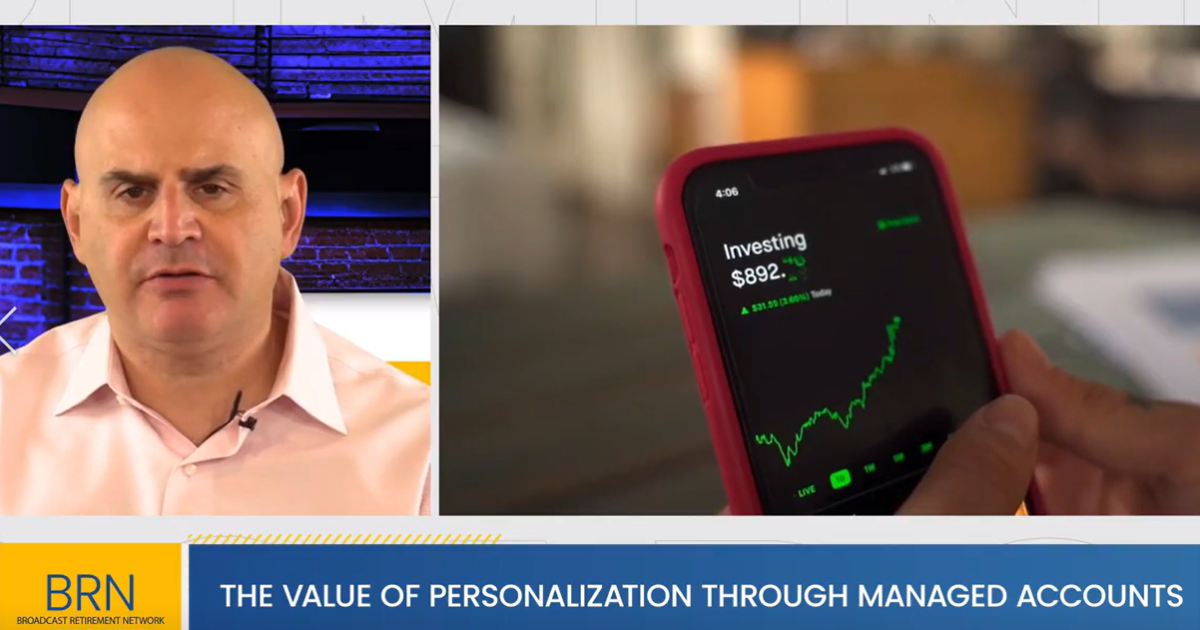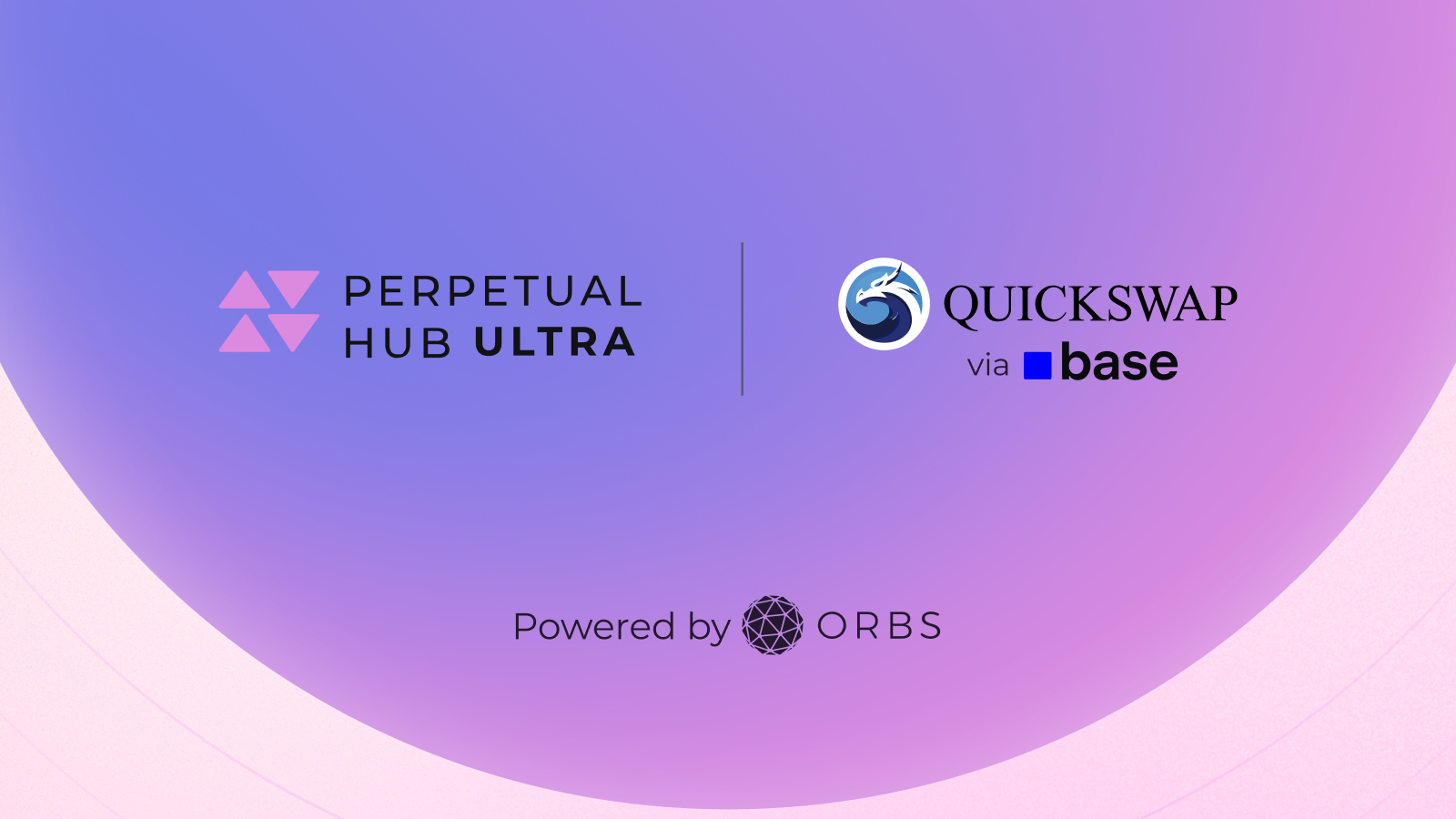Copyright The Street

Personalization in managed accounts allows for tailored investment strategies that align with individual goals and risk profiles Broadcast Retirement Network’s Jeffrey Snyder discusses managed accounts and personalization with Lincoln Financial’s Matthew Condos. Jeffrey H. Snyder, Broadcast Retirement Network This morning, the value of personalization through managed accounts. Joining me now to discuss this and a lot more, Matthew Kondos, the Senior Vice President with Lincoln Financial. Matt, always great to see you. Thanks for joining us this morning. Matthew Condos, Lincoln Financial Yeah, thank you, Jeff. I really appreciate being here and certainly applaud the work that you do with the BRN. Jeffrey H. Snyder, Broadcast Retirement Network Well, thank you, Matt. And I like this story about personalization. I think it’s something that, you know, you’re an industry expert. You’ve been in the industry for a long time. This is something that more and more we’re talking about. So let’s talk about personalization through managed accounts. What does that mean and what are we really talking about here? Matthew Condos, Lincoln Financial Yeah, I’ve been thinking about personalization in managed accounts for several years now. People don’t walk into their doctor’s office and expect their doctor to give them the same treatment as everyone else their age. They shouldn’t expect that from their retirement plan either. People can get personalization by working with a financial professional to tailor their retirement planning to their own unique needs. Now, in an ideal world, everyone would have access to a financial professional. But that’s just not feasible for many individuals who don’t have high enough account balance or want to pay the costs. However, personalization can be brought into a defined contribution plan like a 401k, 403b or governmental 457 plan and made available to the masses through a managed account. This service uses personal information about each employee to create and implement a portfolio of investments customized to each employee’s needs. And unlike pooled investment vehicles like mutual funds, managed accounts are customized and actively overseen by a portfolio manager or advisory team all within the D.C. retirement plan. And it can be complementary to the plan advisor who can choose whether and how to participate in the offering. Jeffrey H. Snyder, Broadcast Retirement Network Matt, how has personalization evolved over time? Matthew Condos, Lincoln Financial Yeah, I think about the last 20 years we’ve seen the evolution of investments trending to more customized services using data. An early example is target date funds. They were introduced decades ago and provide different allocation strategies where the investments automatically change over time. This is an investment offering to consider for those folks who don’t necessarily have a complex set of circumstances. In other words, everyone is treated the same since off-the-shelf target date funds use one data point, the age of the participant. They are simple to understand and implement, and that’s why many plans use them as the Qualified Default Investment Alternative, or QDIA. As the market evolved, custom target date funds were introduced to take into account more data, like plan-specific factors. For example, if we know the employer has a pension plan, then perhaps a more aggressive glide path or asset allocation for that plan might be appropriate. If I now focus on a managed account program, these provide plan participants with an investment recommendation that considers far more data in order to provide a more holistic and specific recommendation. Data points are passed from the plan record keeper in a secure way to the managed account provider. This data includes location, various account balances, Social Security impacts, salary, savings rate, gender, and more. And all these may be incorporated into an individual recommendation. And then my last point, over the years we’ve seen a greater increase in the number of data points that managed account providers receive from record keepers, and have therefore seen far more personalized recommendations than we did in the 2000s when managed accounts were first introduced. Jeffrey H. Snyder, Broadcast Retirement Network So Matt, are managed accounts something a participant sets and forgets, or are they actively involved? Matthew Condos, Lincoln Financial Yeah, Jeff, we’ve seen some plan participants who may not have the time nor interest to actively research the best investment options and asset allocation for their situation, or they may not have a high enough account balance to get a financial professional. Yet they value personalization and look to the benefits package their employers provide as a way to get an institutionally offered, customized service for their situation. At Lincoln, like many record keepers and managed account providers, we offer a variety of options to help meet each participant where they are. Some individuals may choose to set it and forget it, leaving the management of their investments to the professionals, while others may want a more active hand in their portfolio and opt to receive advice when they choose to actively engage. For those that do choose to set it and forget it, though, we still recommend checking in with their account at least annually, or whenever their situation changes in a way that might affect their retirement strategy, such as a birth of a child. But unlike a target date fund, which rebalances according to a predetermined glide path, a managed account can and will make ad hoc adjustments based on evolving personal circumstances. Jeffrey H. Snyder, Broadcast Retirement Network Matt, there’s a cost, I’m assuming, for this service. How do you determine value, and is our managed accounts worth that cost? Matthew Condos, Lincoln Financial Jeff, we often get questions about cost and whether it’s worth it for a planned participant to pay the cost for a managed account, or have the employer select managed accounts as the QDIA and subject those participants to added costs. I don’t think anyone should reject this service just because it costs more than a typical target date fund. Both the participant and the plan get a number of benefits, and I think it’s well worth an evaluation to see if managed accounts would be a good fit. So we’ve talked about how our managed accounts provide fiduciary oversight through ongoing monitoring and rebalancing of a participant’s portfolio to help account for market fluctuations and help them keep on track towards their goals. Furthermore, a participant can get advice on other areas of their retirement strategy beyond investments, such as their potential retirement age, when and how to take Social Security, ideal savings rates, how to take income between regular qualified sources and Roth sources, and more. The best part is that these benefits can be provided even if the participant doesn’t directly engage. Data can still be passed securely over to the managed account partner who uses it to personalize a participant’s asset allocation. If the participant does engage later, the partner will be ready to support them. And then maybe one last point. According to research conducted by a large managed account provider, participants who began using a managed account have higher engagement in their retirement plans overall, with 72 percent increasing their savings rates, leading to potentially higher retirement income and improved confidence. Jeffrey H. Snyder, Broadcast Retirement Network Well, Matt, you just mentioned participant engagement. Have you seen an increase in interest in managed accounts as a service to be offered and one that’s available? Matthew Condos, Lincoln Financial Yeah, so a couple of things here. Lincoln recently conducted our biannual Wellness at Work study, where we interviewed over 2,500 employees across a variety of financial wellness topics. Eighty-one percent of respondents expressed interest in a managed account, including more than a quarter who are very interested or already using a managed account. When asked about the most appealing aspects of a managed account, their top three responses were that it would provide advice on how much to save and when to consider retiring, that they are managed by a professional money manager, and that they get individualized investment recommendations. This new research complements a report from Cerulli Associates last year, where more than half, actually 53 percent, of 401k participants surveyed indicated they would prefer using a service offered through their 401k plan versus finding a financial professional on their own. Jeffrey H. Snyder, Broadcast Retirement Network Matt, let’s talk about the industry. Has the industry been supportive of tools, advice tools, and the utilization of them, such as managed accounts? Matthew Condos, Lincoln Financial Yeah, and we’ve seen managed accounts get implemented in a variety of ways, and I’m thinking of three in particular. Most common over the years is an opt-in approach, where participants have to actively choose to enroll. And we know life gets in the way, though, so we need to make it simple, for example, through a single sign-on approach via the retirement plan’s website. The next option is a qualified default investment alternative, or QDIA, where it’s used as the plan’s default investment vehicle. And then third, the dynamic QDIA has been a newer development. Here a person starts out in a target date fund when they’re younger and their retirement needs aren’t necessarily as complex. Then at a certain trigger point, usually a specified age, they’re automatically moved into a managed account service. Regardless of how it’s implemented, participant education is important. Communication is really the key, and we found that education and engagement campaigns coming from the employer are typically well-received. That’s because the employer remains a reliable resource and a conduit to a variety of personalized services to their employees. Jeffrey H. Snyder, Broadcast Retirement Network Well, Matt, I want to have you take out your crystal ball, and I want to ask about what’s next for personalization, because we see a lot of conversation about artificial intelligence. We’ve had conversations about the inclusion of private markets, such as cryptocurrency, or private equity and private market investments. Where do you see personalization going in the future? Matthew Condos, Lincoln Financial Yeah, so I have a couple of thoughts here. First, I believe demand and expectations will continue to increase, especially as people get more personalization in other aspects of their life, like their experience when ordering products online or utilizing streaming services. As demographics change in the marketplace, there will be more acceptance of technology and utilization for things like education, engagement, and decision-making. Second, there’s a bigger role for the DC plan advisor to play, and we’ve seen some of that already. As firms build out their participant strategy, they will engage further with managed accounts to better service participants in a customized way. And then lastly, I can see the managed account service providers expanding their offerings to include more guaranteed and non-guaranteed retirement income, private market investment vehicles, and additional financial wellness support. Many already have, and I think there’s a great opportunity to help people plan for and experience the retirement they envision. Jeffrey H. Snyder, Broadcast Retirement Network Well, Matt, really appreciate you coming on. Thank you so much for sharing your perspective, and we look forward to having you back on the program again very soon. Matthew Condos, Lincoln Financial Well, thank you, Jeff. I really appreciate it. Take care. Jeffrey H. Snyder, Broadcast Retirement Network That’s all for this morning. Till tomorrow, I’m Jeff Snyder. Stay safe, keep on saving, and don’t forget, roll with the changes.



